Interviews
Introducing Kelleigh Bannen – An Interview

Kelleigh Bannen will probably never be signed to a major label recording contract. But she’s not letting that fact stop her from living out her passion. One of an emerging wave of artists empowered by decreasing production costs and a rapidly changing distribution landscape, the Music City native has taken a do-it-yourself approach to her debut album, Radio Skies, a singer-songwriter/country fusion which features smart songwriting left unfiltered and uncensored by the corporate machine.
Jim Malec: Kelleigh, congratulations on the release of your new–debut–record. What’s been the most surprising or unexpected part of making this album and getting it out to your fans?
Kelleigh Bannen: Thank you! We are certainly celebrating, and are so thankful for the response so far. One thing that has surprised me is how much the music changes. When you’re making music live it changes every night, and that is the difference between live performance and a recording. I don’t know that we would intentionally do a lot of things differently if we recording the album today, but I know it would be a different album today. Does that make any sense? My goal in every live show is to exceed our performances on the record. That is what is so fun about playing live.
JM: You grew up in Nashville, is that right? What did your parents do for a living? Were they involved in the music industry at all?
KB: Not at all. But everyone else was in the industry. The plumber, the yard guy, the next-door neighbor. My dad was a Chevy dealer–so when I talk about cars in my tunes, I mean it! I think there are two separate Chevy references in the songs on this album. Oh, and did you get to see the awesome ’66 silver Corvette in the album artwork? I am a car gal.
JM: You didn’t start actively writing and performing until relatively recently, and your artist bio says that you were “weary” about pursuing a career as an artist. What were some of the things that made you weary?
KB: I think that’s the Nashvillian in me–you see a lot of folks get burned. You see a lot of folks make decisions motivated by dollar signs, and this is supposed to be art, right? But cynicism aside, there are a lot of folks here who make music for the right reasons, and that is what Nashville such a great town and community.
JM: Now that you’ve taken the plunge and are out there living the life, is it how you expected it would be?
KB: Living “the life,” what does that really mean? Nothing in the last year of my life has been what I expected. I think that’s good. It’s definitely exhilarating. I believe in callings and I look at my music as a vocational calling. I used to be kinda sheepish when people asked me about what I did for a living, when I was first writing songs. Now I’m a lot bolder about it. It’s exciting!
JM: I understand that your husband was the one who actually encouraged you to start writing songs. How do you think he was able to see your hidden talent?
KB: Wow, are we giving him that much credit? Yes! He’s a true partner. He lays his life down for me every day so that I can go down this crazy music path. We actually met at an event in college where I was singing. So music was always part of our relationship, and it is part of what makes us work.
JM: Do you think being a songwriter was something that was always inside you, bubbling under the surface, and that you just had to tap into those creative juices, or, on the other hand, do you think it was a role you had to mature into through time and life experiences?
KB: Well, to be honest, my mom claims that I wrote my first song at 18 months. Now, it’s not a song that anyone would want to actually want to listen to, but it was a song, nonetheless. It goes, “There was a little girl and she was very lively. She wasn’t, but she was, but she was very lively.” That’s the whole song. So, I guess “lively” had been the word of the day on Sesame Street, and I must have thought that “lively” was a very inspirational word because I sang that song all the time. But seriously, I think music was always right below the surface for me. Writing is certainly a craft, and you have to practice it, but I think you can learn to write a song. Last week I got to meet with one of the most well-known male artists in country music, and he told me that he’s still learning to write songs, and that he thinks he’s writing and singing the best songs of his life now. I hope I can say that when I’m in my fifties.
JM: Wow, that song is better than about half of what’s on country radio these days. Prior to your music career, you found success designing jewelry. How did you get started in that, and are you still working on jewelry projects while you perform and promote the record?
KB: Jewelry started as a hobby for me in college, and then it turned into a really viable small business–which allowed me to work from home and learn to write songs. I do still have some jewelry on my plate: in March I designed a necklace to raise money for addiction research (and generally to raise awareness about addiction). It’s called the “Clean” necklace and the response so far has been overwhelming. All of the proceeds from the sale of the necklace benefit the Butler Center for Research at the Hazelden Foundation. There is a link on my website called “Clean” where you can learn more about it if you’re interested.
JM: You recently lost your brother, Grant, to substance abuse. Has your music helped you cope with that loss?
KB: Definitely, music breathes new life into me right now. I wrote a ton right after Grant died, which was sad, but good. And I think losing him even makes me perform some of these songs differently, interpret them differently. You know?
JM: That was in February. Were you working on the record at that point? If so, did you find it difficult to keep going forward with the project in what must have been that exceptionally trying time?
KB: At that point the record was completely finished, and we were finalizing the artwork. One small blessing there was that it gave me the chance to dedicate the record to Grant, and I’m grateful for that. The loss of a loved one, in this case an immediate family member, does two things at once: it destroys and builds up. I guess I mean that it can rob you of purpose and can reinvigorate that purpose at the same time. I think we were all shocked to realize that Grant’s life was just over. It just makes you want to do something that matters. Grant would be so proud of me and this record. I hope that it is honoring to him.
JM: What advice would you give to someone who has a friend or family member dealing with an addiction or a substance problem?
KB: I certainly don’t have “the answer” on this topic, but I definitely have an opinion. There is so much in the news about rehab, so many celebrity stories of substance abuse, and I really think that all this pop-culture exposure lessens the public understanding of the power of addiction. Addiction is a fatal disease. Period. It will claim your life if you do not get help, or learn to treat it. It is almost always a lifelong battle, and it does not discriminate by age, gender, race, socio-economic status, or educational level. My family and I have learned to be really open about it because we want good to come out of Grant’s story.
JM: There’s a song on the album called “Little Man” that tells the story of your father, who had a pretty rough time as a kid. How did his experience growing up help to shape you and the environment you were raised in?
KB: Wow, how did you know I love to talk about my dad? My mom is my best friend, but my dad is my hero. My dad is an entirely “self-made” man in the traditional sense. And he was passionate about giving me and our family the things he didn’t have. Sometimes I think that made him work too hard. To me, he is one of the ultimate stories of redemption. I think that Dad’s background made him particularly thankful for the good things in his life, and that value of gratitude is something that was really emphasized by my folks.
JM: What does your dad think about your new career as a singer/songwriter?
KB: He is so proud. I am so happy that he loves what I’m doing. And because my parents live in Nashville they come to my shows a lot. It’s pretty funny.
JM: There’s a quote floating around from you that says some people have called your music “too smart for country and too commercial for indie.” Were you trying to be smart and/or commercial? Walk me through the creative approach to this record.
KB: See, this is going to sound cheesy, but I just think there are two kinds of music–good and bad. And everyone is going to have a different opinion about what’s “good” and what’s “bad”. If my version of “good” music intersects with mainstream country, that’s great. If it intersects with what’s currently cool within indie, I’m totally psyched. But I think if that’s the aim, then I’m making music for the wrong reasons. So I just tried to make the best music that I could.
JM: You grew up listening to and playing classical music, but list Alison Krauss, Tim O’Brien and Patty Griffin among your top influences. What drew you to country music, and to those artists specifically?
KB: Man, those three you just named kill me. They do such different things, but I think there’s one very distinct thread. They are all about the music. Not image, not what’s cool, not what radio is looking for, and by being themselves, it seems, they all have managed to intersect the mainstream music culture. And they’ve affected what’s popular in ways that I think are great for country music. I’m not going to be able to say anything about country music that hasn’t been said before, but I think the music has to come first.
JM: “Say It In A Country Song” is very smart, though, with a complex emotional conflict going on in the lyrics. What’s that song all about?
KB: I guess that’s just my cynical radio song. I wrote that song with my friend and producer on this project, Jabe Beyer. Jabe is a Boston guy, and I had given him about 20 of my favorite country songs to just initiate him in all things country. The list ran the gamut from Dolly Parton to Alison Krauss to Vince Gill. And after compiling that list I just kept thinking about the question, “what is country music, anyway?” and I wrote that chorus, called Jabe and said, “Get over here and write this song with me!” And he did. And we both knew that song was going to change the record. The song’s about a girl who learned everything from the radio, and that schooling serves her well, and fails her at the same time. Another way of saying that might be that you love what you know, because it’s comfortable, but it may not be good for you.
JM: So what is country music, anyway?
KB: You actually went there! Yikes! This is not a real answer, but it might get us on the right track. About a year ago on his blog “A Deeper Shade of Soul” Ben Lazar posted a video of Ray Charles singing “Ring of Fire” on the Johnny Cash show.
JM: What’s your favorite song on the record, and why? Personally, I felt like you really elevated your vocal performance on “Done.”
KB: Really? Thanks! I’ve gotten that comment a couple times, but it makes me laugh because that’s such a rough vocal. I mean, it’s intentionally rough. That isn’t a song you can sing halfway–it’s a very desperate song.”Done” is actually about addiction. A metaphor that is used a lot in recovery compares addiction to a love affair. A lot of people who have been in relationship with an addict say the drugs or alchohol are like the “other woman.” So I wrote that song about my brother, at the time obviously I didn’t know how short his life would be, so some of those lines actually haunt me a bit. I think two of the songs I’m proudest of, though, are “Little Man” and “No Such Thing”. I like those two a lot because I’m particularly proud of what they say.
JM: In reference to the song “Good For Nothin’,” have you ever actually met a man who can’t boil water? Can your husband boil water?
KB: Oh, do I sound mean? My hubby can boil water, and he makes a mean omlette!
This is really a song poking fun at myself–I know it’s about a man, but it’s really digging on me. You know, when people ask me “So, what do you do?” I answer, “Oh, well I’m a singer-songwriter. I sit around my house getting to play music all day, and write songs.” I’m only partly kidding. It really is hard work, and I work harder now than I ever had before I was doing this full time, but doesn’t it just sound sketchy? Singer-songwriter? Come on. So I tell my husband I’m just a “good for nothin’.”
JM: Is there anything sketchy, or significant, to the fact that your album release party was on Friday the 13th? A superstitious person might call that a bad omen.
KB: I am a walking tornado–a total mess–and kinda clumsy. So bad omens don’t really scare me. There wasn’t any real significance to the date, it was just really easy to remember. I’ve always kinda liked Friday the 13th–it’s spooky, but fun. We had a greattime playing that night. Oh, and Metallica played a secret show at the venue the night before our show, so the marquee read “6/12 Metallica. 6/13 Kelleigh Bannen.” Too funny.
JM: What do you hope listeners will take away from the album? What do you hope they’ll learn about Kelleigh Bannen?
KB: I hope they’ll have fun, I hope they’ll be challenged, I hope they’ll be tapping their toes and humming the tunes. My hope is that when they listen they’ll hear real music. Sometimes, in this industry, there is so much work “perfecting” music that some of the soul is lost. We intentionally left some of that “perfecting” out so that there would be real music in there. I hope that translates
- Lists13 years ago
Top 10 Country Music Albums of 2010
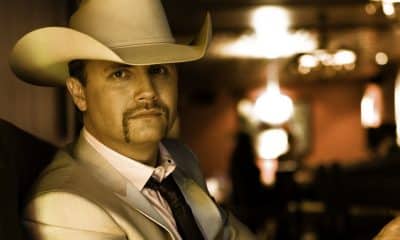
 Interviews5 years ago
Interviews5 years agoJohn Rich – The Interview
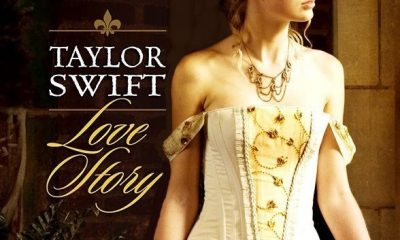
 Song Reviews16 years ago
Song Reviews16 years agoTaylor Swift – “Love Story”

 Interviews5 years ago
Interviews5 years agoHoneyhoney on Hiatus: Revisit our 2008 Interview with Suzanne Santo
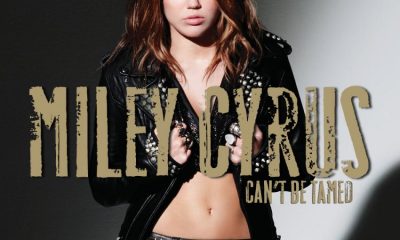
 Album Reviews14 years ago
Album Reviews14 years agoAlbum Review: Miley Cyrus – Can’t Be Tamed
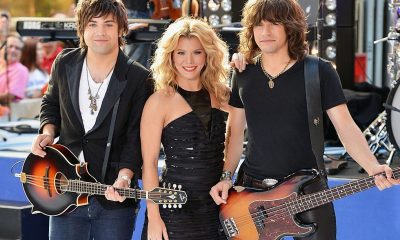
 Song Reviews6 years ago
Song Reviews6 years agoThe Band Perry – “Hip To My Heart”
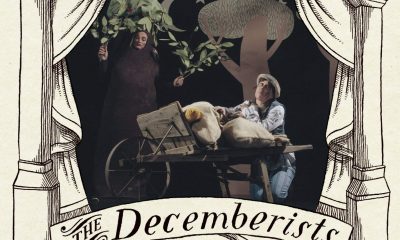
 Columns5 years ago
Columns5 years agoThe Link Between Folk Music’s Past and Present
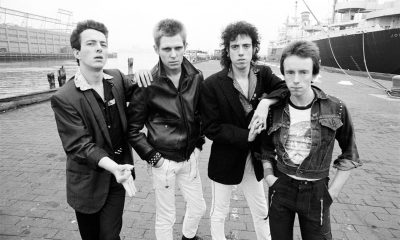
 Columns5 years ago
Columns5 years agoIs Marketing Killing Rock and Roll?

